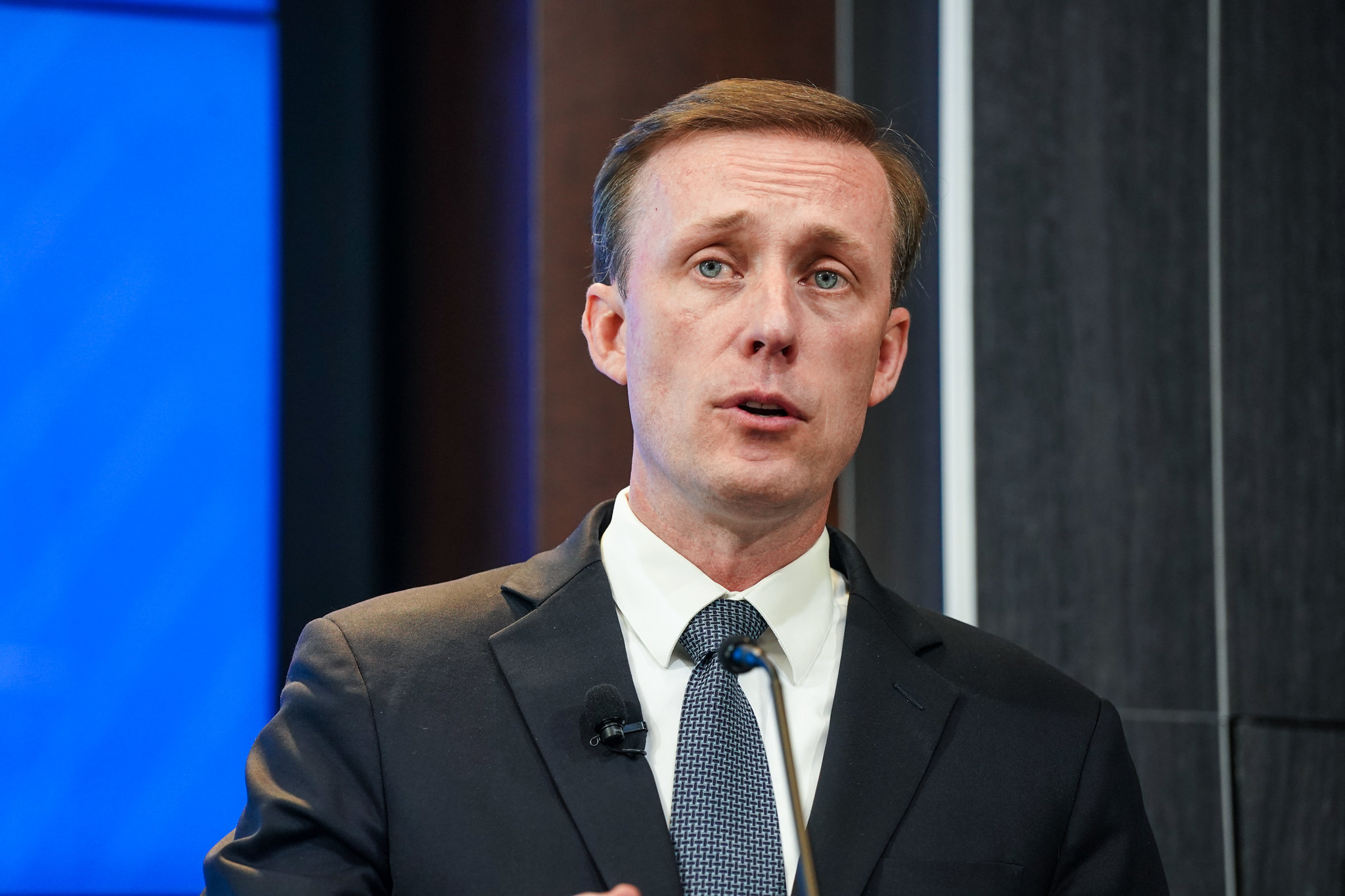News
US commited to complete Korean Peninsula denuclearization: Sullivan
Yonhap, Philippine News Agency

Sullivan’s trip to China came as Washington apparently seeks to stably manage relations with Beijing ahead of the Nov. 5 presidential election. (File Photo: Ralph Alswang, Brookings Institution/Flickr, CC BY-NC-ND 2.0)
WASHINGTON – National Security Advisor Jake Sullivan on Thursday reaffirmed the United States’ commitment to the “complete” denuclearization of the Korean Peninsula during his talks with top Chinese officials in Beijing this week.
Sullivan made the remarks during a press conference in the Chinese capital amid lingering concerns in South Korea over the absence of references to the denuclearization goal in recently adopted Democratic and Republican policy platforms.
During his trip there this week, he held talks with Chinese President Xi Jinping, Foreign Minister Wang Yi and Central Military Commission Vice Chairman Zhang Youxia — meetings that he cast as “constructive, candid and substantive.
”
“In all of my meetings, I stressed the importance of maintaining peace and stability across the Taiwan Strait; emphasized the United States’ commitment to complete denuclearization of the Korean Peninsula,” Sullivan said in the press briefing, according to a transcript released by the White House.
“I reaffirmed the United States’ commitment to our Indo-Pacific allies including our concerns about destabilizing actions against lawful Philippine maritime operations in the South China Sea,” he added.
During their recent national conventions, both the Democratic and Republican Parties adopted new policy platforms that did not have any reference to the denuclearization objective for the Korean Peninsula.
The omission has raised concerns in Seoul that Pyongyang could misconstrue it as an opening to seek US acknowledgment of the North as a de facto nuclear power and negotiations on arms control rather than on denuclearization — an anathema to Seoul.
Sullivan’s trip to China came as Washington apparently seeks to stably manage relations with Beijing ahead of the Nov. 5 presidential election.
He unveiled a plan for President Joe Biden and Xi to speak over the phone in the coming weeks as part of efforts to enhance bilateral communication and relations.
“We believe that keeping lines of communication open is critical,” he said. “And to that end, we began planning towards a leader-level call in the coming weeks where I expect these discussions to continue.”
On the possibility of Biden and Xi meeting in person, Sullivan noted the likelihood of the two leaders attending the Asia-Pacific Economic Cooperation (APEC) and Group of 20 (G20) summits slated to take place in Peru and Brazil — both in November — respectively.
“It is likely that both President Biden and President Xi will be at APEC and the G20 later this year,” he said.
“I don’t have any announcements to make on either President Biden’s travel or a potential meeting, but the likelihood is they’ll both be there, and if they are, it would only be natural for them to have the chance to sit down with one another.”
The security advisor reiterated that his visit to China was part of efforts to manage the bilateral relationship “responsibly.”
The security advisor reiterated that his visit to China was part of efforts to manage the bilateral relationship “responsibly.”
“Under President Biden’s leadership, the United States has and will continue to advance its interests and values, look out for its friends,” he said. “And as we do, we believe that competition with China does not have to lead to conflict or confrontation. The key is responsible management through diplomacy.”
In their talks, Sullivan and Chinese officials also discussed various issues related to technology, Russia’s war in Ukraine, instability in the Middle East, and other areas.
“We remain deeply concerned about China’s support for Russia’s defense industrial base and its impact on both European and transatlantic security, not to mention on Russia’s brutal aggression against Ukraine,” he said.
He vowed to continue to take necessary action “to prevent advanced U.S. technologies from being used to undermine our national security without unduly limiting trade or investment.” (Yonhap)





















